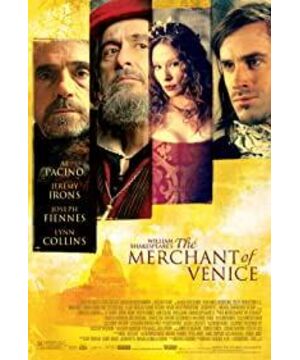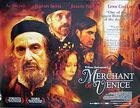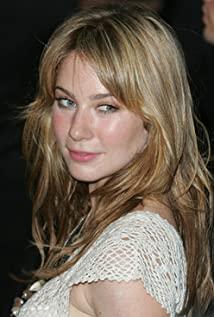vaguely felt that the director was trying to respect from an objective and fair point of view. The interpretation of the original book, I think he did it. Rather than seeing the characters in the film through the screen, it is better to see the author Shakespeare through the characters. Even if he is as great as him, under the strong social background of religion and culture, he also Being branded with such a distinct brand of humanity.
After reading it, the lines that moved me the most were not the noble dedication of the businessman, the lover's eachother, nor the wisdom and wisdom of the beauty, but the hoarse questioning of this despised Jew. His madness after losing his only daughter and all his money (and the daughter who betrayed his father looked like a lotus flower that was cast out of darkness), all sanity was gone at this time, and the whole religion and nation suffered The insult in this gram more than makes up for any money. Is it wrong? Is it unreal? Is it inhuman?
In my opinion, the most real thing in the film is this "dirty and shameful" Jew. The zealous businessman is a hypocrite, willing to sacrifice his life for a friend but expecting the other to see and remember for the rest of his life that he died for him. In pursuit of beauty, young people are beyond their means and need to rely on the financial support of their friends. When they see their friends sign the life and death certificate, they are just pretending to give up politely. As soon as the friend insists, he is not happy to propose marriage. Since the wife helps her husband out of love, why bother to deceive his ring and deliberately make things difficult, no matter whether he gives it or not, what is the difference? But the Jews are real, and he candidly expresses his humiliation and hatred. The last moment of holding the knife truly revealed the inner struggle and intolerance. As for being forced into Christianity in the end, I originally thought that because of the hatred in his heart and the experience of betrayal and separation, maybe he would choose to commit suicide, but of course the author did not let him do so, otherwise he would not be the villain. The truth we know is this: with the tolerance of good people, bad people should eventually be influenced.
The ending is a secular happy ending. It seems that only one person has a tragic ending, and this person is lucky enough to convert to the right path, but in this person, it reflects the tragedy of a nation and even many religions (those who were slaughtered as pagans, Not just Judaism). Thanks to Shakespeare and the director for recording and restoring such a piece of history.
View more about The Merchant of Venice reviews











